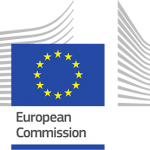
The European Commission’s third Counterfeit and Piracy Watch List names websites and physical marketplaces outside the EU that are reported to engage in, facilitate or benefit from counterfeiting and piracy. As in previous years, linking websites and cyberlockers were widely reported together with unlicensed IPTV operators, peer-to-peer networks and BitTorrent indexing websites and stream-ripping services, according to the report.
The report identifies individual infringing providers across several categories, which include:
- Cyberlockers, which are cloud storage and cloud sharing services that enable users to upload, store and share content in centralised online servers, like Mega.nz/.io, Uptobox, Rapidgator and DBree,
- Stream-ripping services, including websites, software and apps that enable users to obtain a permanent copy of audio or audiovisual content by downloading it from online streaming platforms like Y2mate, savefrom, Flvto, 2conv and snappea,
- Linking and referring sites which aggregate, categorise, organize and index links to content that is usually stored on other sites allegedly containing pirated content, including cyberlockers and hosting sites, including fmovies, seasonvar.ru, rlsbb.ro and rezka,
- P2P and torrent sites which act as aggregators of peer-to- peer links, which users can search for and access via the website, including Pirate Bay, Rarbg, Rutracker,
- Unlicensed download sites offering direct downloads of the content for free or for a fee
Emerging threats
Some new services and trends were reported, such as services supporting piracy by offering off-the-shelf services that make it easy for would- be pirates to create, operate, and monetise a pirate operation. Reference was also made to potential copyright infringements in the context of the metaverse, which may require further monitoring in the future, it said.
Incremental results
Since the 2020 release of this Watch List, some marketplaces identified in the 2020 list were not included in this year’s issue, due to actions and measures taken by enforcement authorities, rightholders and the owners, operators and landlords of marketplaces and online service providers; partly as a consequence of the Watch List.
Marketplaces that have taken positive steps by working with rights holders, implementing new policies or implemeiting piracy detection and anti-piracy countermeasures include Mercado Libre, which has put an IP protection case management system in place across all 18 of its marketplaces. Another is Snapdeal which impleented a brand protection program with features that prevent, protect against and deter counterfeiting and piracy.
Changing status
Previously reported infringing sites have been taken offline, including Bookfi.net, Electrotv-sat.com, Wi.to, Youtubeconverter.io and Popcorn Time.
Further reading
Access the report: Commission Staff Working Document, Counterfeit and Piracy Watch List, December 1, 2022, European Commission
Access the summary press release: Commission publishes latest Counterfeit and Piracy Watch List, December 1, 2022, European Commission
Why it matters
This report is a European counterpart to the Notorious Markets report published by the United States Office of the US Trade Representative, which also identifies categories and marketplaces where content is distributed illegally.
Challenges remain. For example, officials remain skeptical that providers of CDN services like Cloudflare are making the full effort to police for piracy taking place in their networks.
On one hand, Cloudflare insists that its abuse reporting system and Trusted Reporter program demonstrate the cooperation with rightholders and have put facilities in place to automate the submission of abuse complaints. Cloudflare’s Trusted Reporter program was designed for large rightholder organizations who have demonstrated a need for additional information and a capacity to protect sensitive information.
On the other hand, two 2021 decisions were issued by a Milan court on appeal in proceedings against Cloudflare. In both cases the Court confirmed prior orders issued in 2020 under which Cloudflare was obligated to block the provision of hosting, caching or other services to illegal IPTV providers. In July of 2022, the same court ordered Cloudflare to block DNS resolution of some pirate torrent sites.
In summary, the court did not grant the benefit of the doubt.












